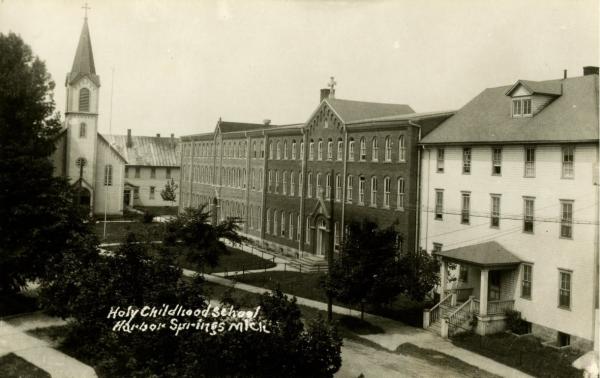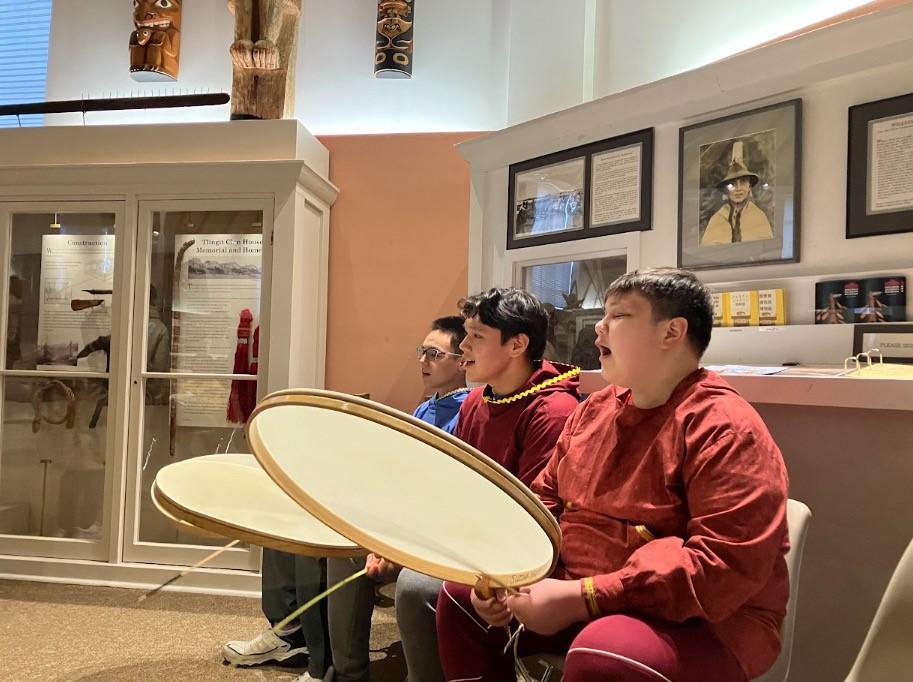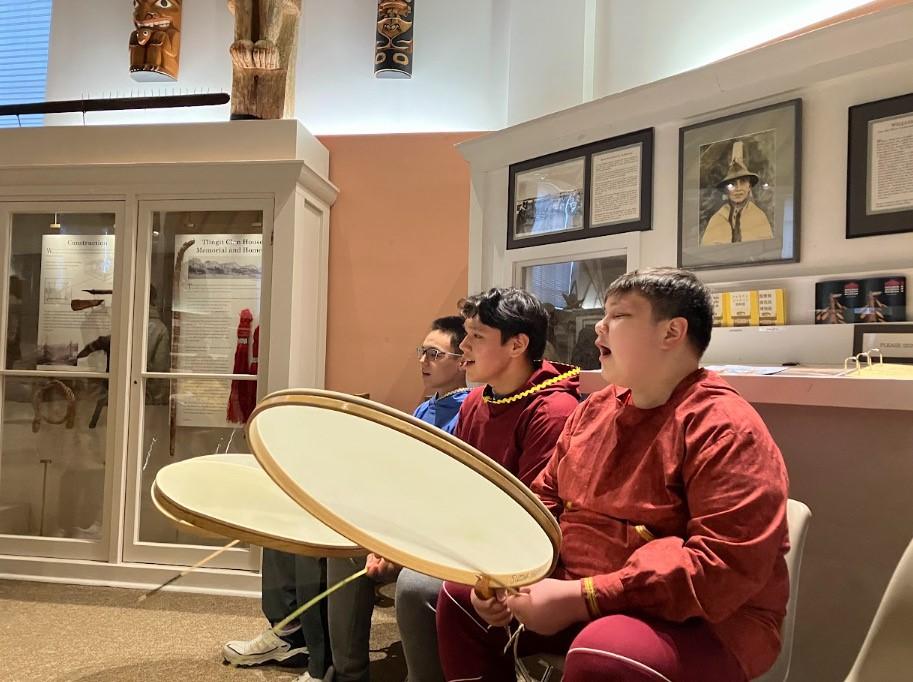NEH Awards $411,000 to Tribal Communities for Projects on the History and Legacy of Federal Indian Boarding Schools

Holy Childhood School in Harbor Springs, Michigan
courtesy Little Traverse Bay Bands of Odawa Indians

Holy Childhood School in Harbor Springs, Michigan
courtesy Little Traverse Bay Bands of Odawa Indians
The National Endowment for the Humanities (NEH) has awarded $411,000 in funding to 14 Tribal Nations and organizations to support local and community projects that expand the reach and impact of the Federal Indian Boarding School Initiative (FIBSI).
Special NEH Chair’s grants of up to $30,000 will support federally recognized Tribes, nonprofit Tribal entities, and state organizations that work with Tribal communities in 11 states on an array of education, research, and public programs that shed light on the legacy of the system of 408 Federal Indian boarding schools operating in the United States between 1819 and 1969.
These newly awarded grants include funding to the Cowlitz Indian Tribe to conduct a ground-penetrating radar (GPR) survey of the grounds of the St. Mary’s Boarding School in Washington—where many Cowlitz children were sent between 1911 and 1973—to look for unmarked burials of children who died at the school. One award will support the creation of a traveling educational exhibition on the history of boarding schools in Michigan by the Little Traverse Bay Bands of Odawa Indians, and another will enable production of a multimedia radio and video series about the impact of Federal Indian boarding schools in Alaska using survivor and family interviews by Koahnic Broadcast Corporation.
“NEH is pleased to award these grants to fourteen Tribal Nations and organizations to enlist their help in recovering and telling the history of Federal Indian boarding schools and the students who passed through them,” said NEH Chair Shelly C. Lowe (Navajo). “These grants will help document this often painful past, shed light on the far-reaching consequences of Federal Indian boarding school policies on Native communities, and provide opportunities for communities to discuss and heal from their legacy.”
As part of NEH’s ongoing inter-agency partnership with the Department of the Interior (DOI) to collect oral histories and digitize federal records documenting the experiences of survivors and descendants of Federal Indian boarding schools, NEH issued a special funding opportunity in August 2023 for federally recognized Tribal governments, Tribal nonprofits, and state and local government organizations who work with Tribal communities for research, community engagement, Tribal history collection, public programs, and educational projects that work toward the FIBSI’s goals of elucidating the impact of Federal Indian boarding school policies on Tribal communities.
NEH Chair’s grants of up to $30,000 have been awarded to:
- Alaska Native Heritage Center, Alaska, to support creation of an interactive digital map showing the scale and scope of Indian boarding schools in Alaska to be installed as a permanent exhibit and on their website.
- Cowlitz Indian Tribe, in Washington, for a ground-penetrating radar (GPR) survey of St. Mary’s Boarding School to detect unmarked burial grounds.
- Diné College (Navajo Nation Tribal Government), in Arizona, to support creation of an exhibit of portraits of community members who attended boarding schools and public programming curated by students at the Diné College Museum.
- History Colorado, in Colorado, to support the collection of oral histories documenting the experience of Ute attendees of Colorado’s Fort Lewis, Grand Junction, and on-reservation boarding schools and their descendants.
- Klamath Tribes, in Oregon, to support the collection of approximately 150 hours of audiovisual oral history recordings of Klamath Tribes elders who attended federal boarding schools, as well as their family members who have memories related to these experiences.
- Koahnic Broadcast Corporation, in Alaska, to support production of a series of radio and video/multimedia features about the impact of Federal Indian boarding schools in Alaska using survivor and family interviews.
- Little Traverse Bay Bands of Odawa Indians, in Michigan, to support creation of a traveling education exhibit using 40 high-quality, transportable panels to share the history of boarding schools with Tribal communities and the Michigan public.
- Mt. Edgecumbe High School, in Alaska, to support the development of education curricula supports and resources to teach Alaska boarding school history at Mt. Edgecumbe High School.
- North Shore Community Land Trust, in Hawai’i, to support community-based oral history research and story-mapping of the Waialeʻe Industrial School for Boys and the Kawailoa Industrial School for Girls.
- Oneida Nation, in Wisconsin, to support oral history walking tours with elders and high school students as well as an exhibit and a podcast created by local high school students.
- Saginaw Chippewa Indian Tribe, in Michigan, to support the development of a website to inform stakeholders and the public regarding ongoing preservation and reuse of the former Mount Pleasant Indian Industrial Boarding School site.
- Sitka Tribe, in Alaska, to support a project to develop a digital archive of institutional history and curriculum materials from the Sitka Native Education Program.
- Stewart Indian School, in Nevada, to support a project to create finding aids and to digitize and make accessible records pertaining to the Stewart Indian School from the National Archives and Records Administration (NARA) in San Bruno, California.
- Winnebago Tribe of Nebraska, in Nebraska, to support archival research on and site visits to boarding schools that housed Winnebago Tribal members in order to create educational information for the Tribe about this history.
Future funding opportunities for projects examining the history and legacy of the Federal Indian boarding school system will be offered on the NEH website. Sign up for the NEH newsletter for updates on these and other NEH grant programs.
National Endowment for the Humanities: Created in 1965 as an independent federal agency, the National Endowment for the Humanities supports research and learning in history, literature, philosophy, and other areas of the humanities by funding selected, peer-reviewed proposals from around the nation. Additional information about the National Endowment for the Humanities and its grant programs is available at neh.gov.

